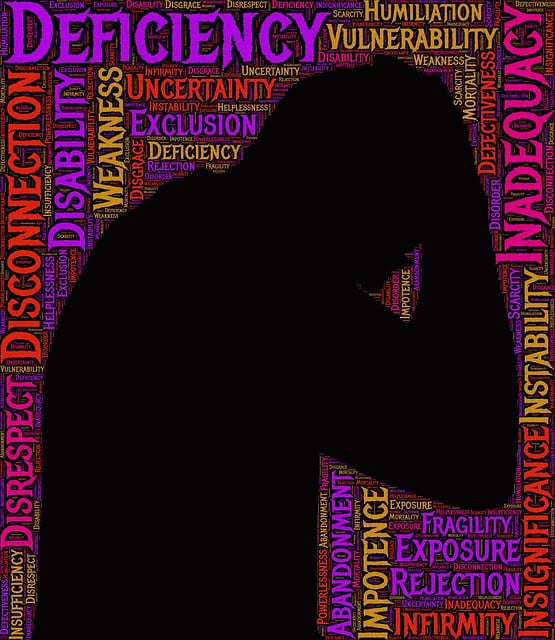Longmont Dissociative Disorder Therapy offers specialized support for individuals dealing with dissociative disorders, triggered by trauma. Their holistic approach combines evidence-based practices like Mind Over Matter crisis intervention and mindfulness exercises to help patients regain control and manage symptoms. The program emphasizes personalized care, self-care routines, and community education to reduce stigma and improve access to mental health resources, ultimately empowering clients towards stability and resilience.
In times of crisis, effective intervention strategies are vital for supporting individuals dealing with dissociation, a common symptom of dissociative disorder. This article explores comprehensive guidance on crisis intervention techniques, offering valuable insights for both professionals and caregivers. We delve into the complexities of dissociative disorder and present Longmont’s proven approach to crisis management. Additionally, practical guidelines are provided to enable effective support and facilitate recovery journeys, emphasizing the transformative power of Longmont Dissociative Disorder Therapy.
- Understanding Dissociative Disorder and Crisis Interventions
- Longmont's Approach to Crisis Intervention Strategies
- Practical Guidelines for Effective Support and Recovery
Understanding Dissociative Disorder and Crisis Interventions

Dissociative Disorder (DD) is a complex mental health condition characterized by a disruption in an individual’s sense of identity and reality, often leading to feelings of detachment from one’s thoughts, memories, or surroundings. This disorder can be triggered by traumatic events, causing a person to develop multiple distinct identities or personalities. Longmont Dissociative Disorder Therapy focuses on helping individuals manage these symptoms and regain control over their lives.
In crisis intervention settings, understanding the core principles of Mind Over Matter—a powerful tool for mental wellness—is essential. By guiding patients to reconnect with their inner strength and resilience, therapists can assist in grounding them during crises. Encouraging self-care routine development is another vital strategy. This involves promoting activities that foster emotional stability, such as mindfulness exercises or creative outlets, which can help individuals navigate the challenges of DD. The Mental Wellness Podcast Series Production can also offer valuable insights for both patients and caregivers, providing accessible resources to enhance understanding and support.
Longmont's Approach to Crisis Intervention Strategies

Longmont’s approach to crisis intervention strategies is deeply rooted in a holistic understanding of mental health and well-being. Recognizing that each individual, especially those struggling with dissociative disorder, has unique needs, our methods prioritize personalized care. We believe in fostering an environment where individuals feel seen, heard, and supported during their journey towards recovery. This involves not just addressing symptoms but also empowering clients to develop effective coping mechanisms and build resilience.
Our therapy sessions, focusing on Longmont dissociative disorder therapy, incorporate evidence-based practices alongside innovative techniques to enhance client outcomes. We emphasize the importance of stress management and confidence boosting strategies, which are integral in mitigating crisis situations. Furthermore, we’re committed to Mental Illness Stigma Reduction Efforts, ensuring that our interventions promote understanding, empathy, and a supportive community for those facing dissociative disorders and other mental health challenges.
Practical Guidelines for Effective Support and Recovery

When providing support to individuals experiencing a crisis, whether it’s related to trauma, stress, or mental health conditions like Dissociative Disorder in Longmont, several practical guidelines can enhance the effectiveness of intervention strategies. Firstly, ensure a safe and non-judgmental environment where the person feels comfortable opening up about their experiences. This involves active listening, empathy, and validating their emotions. Mental Health Education Programs Design can equip support systems with the knowledge to recognize triggers and respond appropriately.
Additionally, incorporating Compassion Cultivation Practices into crisis intervention can significantly benefit recovery. Encouraging mindfulness, self-compassion, and positive self-talk helps individuals process traumatic experiences and promotes resilience. The role of mental health professionals is pivotal in guiding these practices, offering strategies tailored to each person’s unique needs. Such personalized support, combined with a comprehensive Mental Health Policy Analysis and Advocacy approach, can lead to more successful outcomes and improved access to care for those facing crises.
In conclusion, crisis intervention strategies play a pivotal role in assisting individuals suffering from dissociative disorder. By integrating insights from Longmont’s approach and practical guidelines, therapists can provide effective support for recovery. Adopting these strategies enables professionals to offer tailored care, fostering resilience and improving outcomes for those navigating the challenges of dissociative disorder in both acute crisis situations and ongoing therapy. For comprehensive guidance on Longmont Dissociative Disorder Therapy, seeking professional training and resources is essential to ensure competent and compassionate care.














